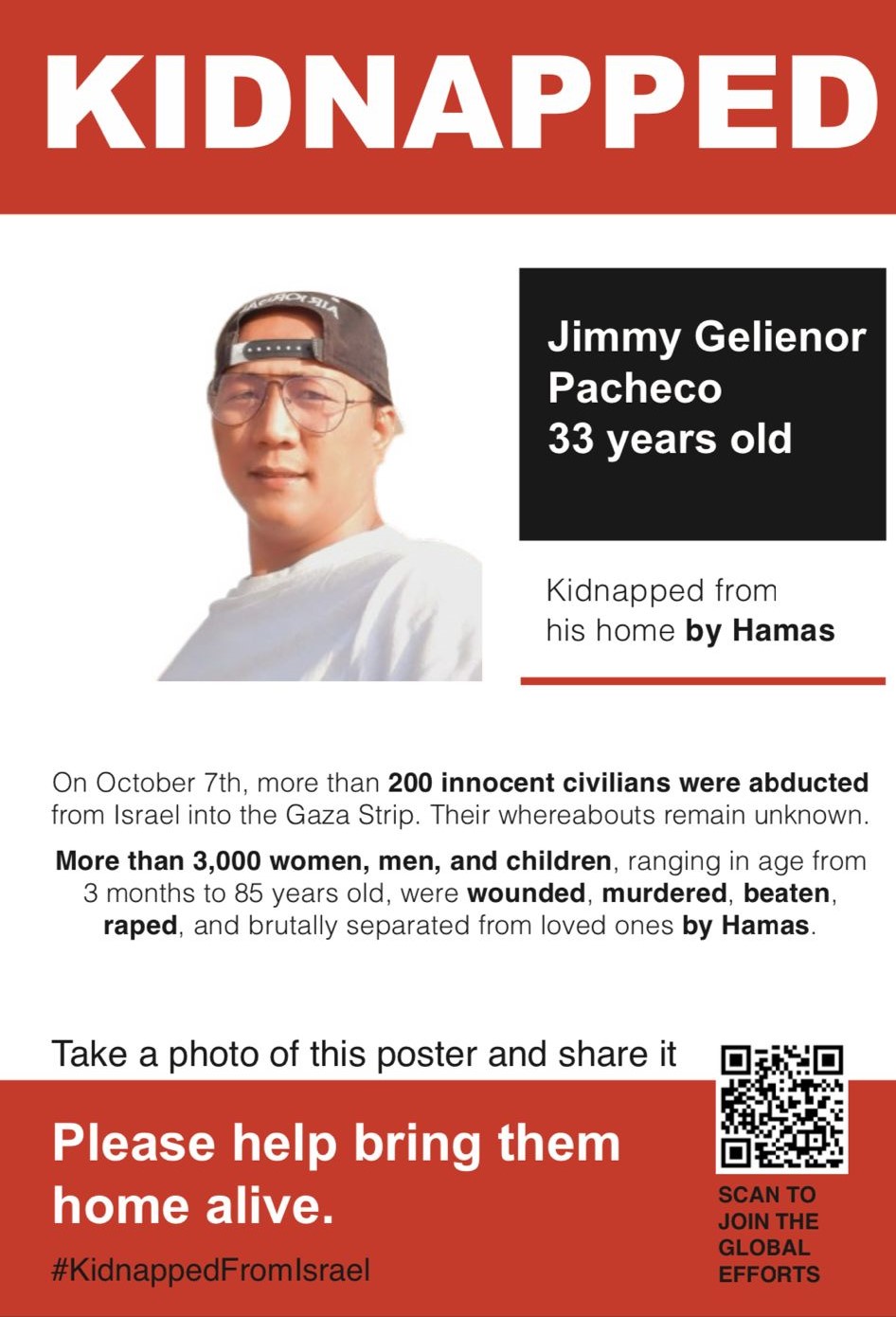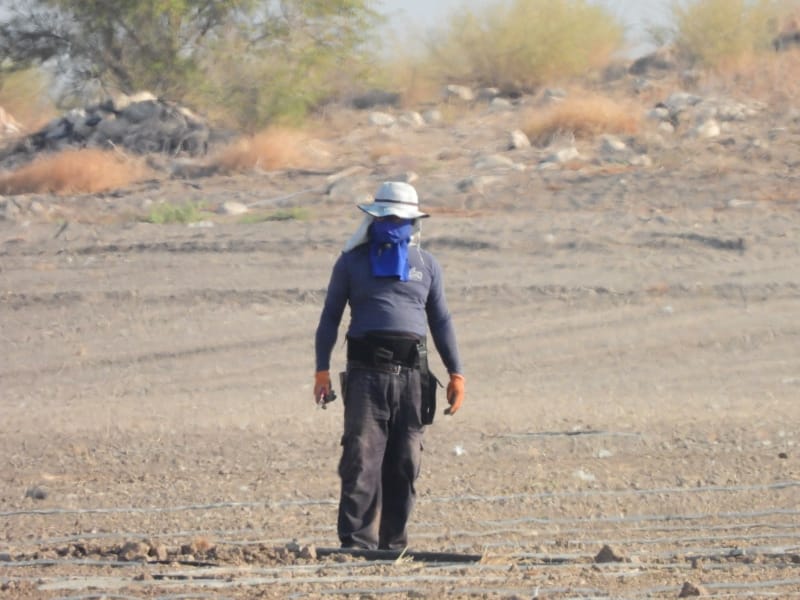“Brother, please help me, I’m exhausted. I work at Kibbutz Nir Oz. My friends have been taken from us, and I don’t know what to do now,” stated a translated message sent to us on October 7th via our Facebook page, written by a migrant agricultural worker from Thailand. Another heartbreaking plea arrived from a relative of a Thai worker, saying, “Help me, I can’t reach my loved one.”
We desperately reached out to the Thai embassy in Israel, providing them with the names of workers who had contacted us, along with information about those who were missing and the locations they were last seen. However, the embassy was also overwhelmed, inundated by thousands of distress calls from people recounting terrifying encounters with armed terrorists, who fired at them and forcibly separated them from their friends, carrying them across the border into Gaza.
We frantically collaborated with grassroots initiatives, valiantly rescuing laborers fleeing the raging inferno. They sought refuge in desolate hangars or distant farms, far from the menacing missiles that rained down upon them. Heartwarming acts of bravery were also witnessed, as compassionate farmers shielded their Thai workers, those who toiled diligently to sow and reap, ensuring their safety in this time of turmoil.
 Despite our best efforts, the governmental offices we reached out to were also engulfed in the tempest of chaos and despair. In the midst of this turmoil and confusion, we clung to any sliver of hope, striving to make a difference in a world that had turned so dark and unpredictable.
Despite our best efforts, the governmental offices we reached out to were also engulfed in the tempest of chaos and despair. In the midst of this turmoil and confusion, we clung to any sliver of hope, striving to make a difference in a world that had turned so dark and unpredictable.“Hello?” A message arrived from Shaarei Zedek Hospital “a Thai worker from one of the affected zones in the south has been injured, can you help with translation? “We’ve done all we can,” they declared, “he’s stable now, ready for discharged and to go home.” “But we replied, he cannot venture back to his desolate farm, where death descends like a merciless rain of rockets, so perilously close to the turbulent Gaza border. He has no home.” “Ah, right”.
Then, a distressing message reached us, concerning a group of Nepali agricultural students and a group of Thai workers who found themselves huddled in the gloomy confines of a basement on the outskirts of Moshav Mivtachim. “Please, save them,” the desperate pleas from the workers’ friends, trapped in a realm of uncertainty, echoed, not knowing if the specter of death lurked just beyond the basement doors. The entire Nepali migrant workers’ community was left shattered, their hearts heavy with grief, having already lost ten of their own in the tragic events at Kibbutz Alumim.
We made frantic calls to the office responsible for international agricultural student programs at Israel’ Ministry of Foreign Affairs and the Immigration and Population Authority, desperately seeking answers. Did they know about the group trapped in that dire situation? The answer was yes, they were aware, but it offered little solace in the face of such overwhelming sorrow.
These are the harrowing tales of migrant workers and foreign citizens who embarked on a journey to Israel, seeking to study and work, only to find themselves thrust into the heart of a war-torn zone. Here, they faced a cruel reality with no lifelines of information, no familial refuge to turn to, and no one to share their whereabouts with, clinging to the hope that someone would come to their rescue.
Since October 7th, Kav LaOved shifted its normal mode of work and has been wholly dedicated to the urgent mission of preserving lives. The typical inquiries about wages and social benefits have given way to desperate appeals for rescue and evacuation. The devoted team at Kav LaOved has not experienced a moment’s respite since that fateful Saturday, ceaselessly translating and working in collaboration with overwhelmed government ministries and various organizations, all in a relentless endeavor to offer vital assistance.
As the days slowly brought a semblance of stability, a new kind of turmoil emerged in our messages. “I have been working here in Israel for 4 years” wrote a Thai worker “I want to leave. Am I entitled to my labour rights and compensations? My employer says they will pay me only when I arrive back to Thailand.” You’re entitled, yes, we tell him. You all are. Other distress calls arrive. “I want to leave the country but my employer refuses to return my passport,” writes a frightened worker who is trying to escape from a conflict to which he does not belong. “Please help me evacuate,” writes another, “my employer won’t let me leave.” We call employers and remind them that the law forbids confiscating passports from workers, and that workers must be allowed to leave if they wish so. Farmers may need their working hands as their farms are on the verge of collapsing, but workers, certainly migrant workers who are strangers to this conflict, cannot be compelled to remain against their will. it is a grave injustice to deny these workers the right to depart from this turmoil they never wished to be part of.
“The very food security of this nation now rests in the capable hands of migrant agricultural workers,” proclaimed a senior representative from the Immigration and Population Authority during a critical session at the Knesset Committee. The gathering revolved around a sobering assessment of the exodus of migrant workers and the sectors they leave behind in their wake.
In a valiant effort to keep these vital workers in place, authorities have extended offers of compensation, incentives, and rewards, imploring them to remain steadfast, even in the face of their own fears and the ongoing war. Whether their appeals will prove effective remains an uncertain question, one that only the passage of time will answer. And that is an aspect that Kav LaOved is vigilantly monitoring to ensure that these workers are protected to the fullest extent, irrespective of the path they choose.
In this turbulent landscape, Kav LaOved is also closely assisting migrant caregivers whom we do not forget. These caregivers who left their families in their homelands to come to Israel, dedicating themselves to the care of our elderly parents and beloved family members with disabilities. These caregivers, scattered throughout kibbutzim and cities in the South, awoke on that fateful October 7th to the jarring symphony of sirens, explosions, gunshots, and harrowing cries.
Even amidst this chaos and distress, they continued their selfless duties, unwavering in their commitment to those entrusted to their care. These remarkable women and men, these unsung heroes, stood by the side of the helpless patients they served, offering protection while, in many instances, jeopardizing their own safety. They didn’t flee; they remained steadfast until help arrived, or until the heartbreaking end.
In this unimaginable reality, many migrant caregivers became real-life saviors, their dedication and selflessness shining through in the darkest of times as they carried on with their invaluable work, just as they always had. Tragically, some of these migrant caregivers paid the ultimate price, losing their lives, and others were tragically abducted, despite bearing no connection to the conflict that unfolded around them.
In October 2023, the thousands of migrant workers in Israel bore witness to indescribable trauma, a haunting memory etched into their souls. What they experienced on that day will forever haunt them. When the thunder of cannons finally subsides, when tranquility gradually returns, it is crucial that we all, especially our political leaders, remember these workers.


